Description
ABSTRACT
Carbon Taxation as a Lever for Advancing Environmental Pollution Control in Nigeria
Kayode Babatunde Oyende*
A tax is a monetary charge imposed by the government on persons, entities, transactions, or property to yield public revenue. The money raised via taxation is presumably used to provide amenities needed for good life like good road networks, the establishment of factories to produce goods and services, and the creation of housing estates, schools, and hospitals to cater for the welfare and health of the people etc. A carbon tax, in theory, is imposed on the price of carbon and its products, which have been established to be responsible for emissions arising from the burning of carbon products, thereby leading to the increase in Green House Gases (GHG). Environmental pollution and degradation have arisen because of the indiscriminate destruction of the environment as a result of the anthropogenic activities of humans in their quest for development. These activities, if not checked, will lead to increased carbon emissions. Carbon taxation is one of the ways of checking this menace by imposing taxes on the production of these carbon-causing substances. This measure is also expected to serve as a disincentive to producing the carbon substances responsible for the depletion of the ozone layer. This paper examines the law and policy behind imposing a carbon tax to curb carbon emissions. The paper also examines whether this strategy has produced the desired effect.
Keywords: Carbon tax, Ozone Layer Depletion, Ozone Depleting Substances, Green House Gases
INTRODUCTION
Pollution is defined in the NESREAAct as ‘man-made or man-aided alteration of the environment’s chemical, physical, or biological quality beyond acceptable limits and “pollutants” shall be construed accordingly.1
Anything that pollutes is a pollutant, and it may have its source in physical, chemical or biological activity. Such materials affect the usefulness of any recreational resort since they tend to alter the environment’s physical, chemical or biological balance. Pollution is brought upon the environment because of the transformation of the environment through the production of matter or energy. In effect, pollution is an inevitable consequence of development and growth brought about by the action of humans.2 Therefore, pollution is engendered on the environment by man’s activity as an agent of change. Humans can therefore be described as pollution-causing agents and, by extension, a pollutant of the environment.
* PhD (Kwazulu-Natal), LL.M (Ife), LL. B (Ife), BL. Senior Lecturer, Department of Public and Private Law, Lagos State University, Ojo, Nigeria. Email: ka***********@******du.ng. Tel: +2348033491082.
- See s 37 of the National Environmental Standards and Regulations Enforcement Agency (Establishment) NESREAAct, Cap C37 Laws of the Federation of Nigeria, 2004. Henceforth referred to as NESREAAct.
- This is referred to as the anthropogenic activities of humans being the primary agent of change in an acquired environment.

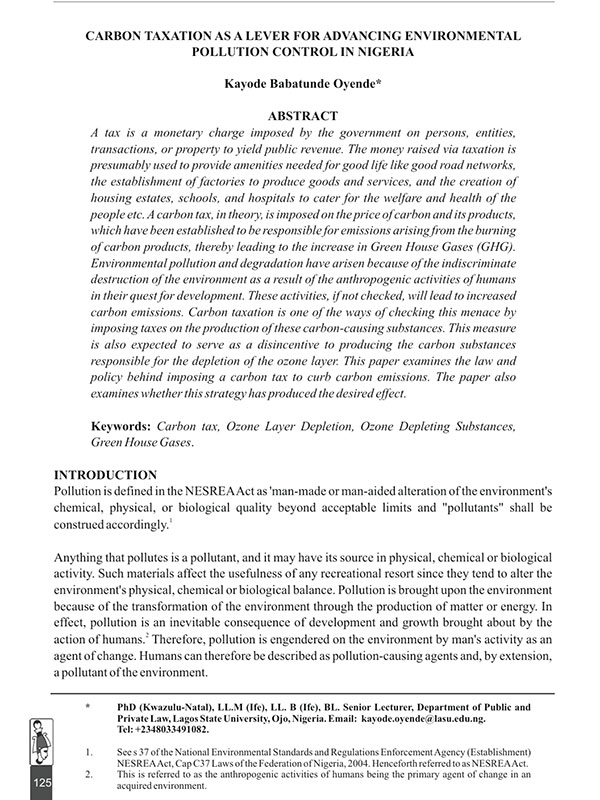
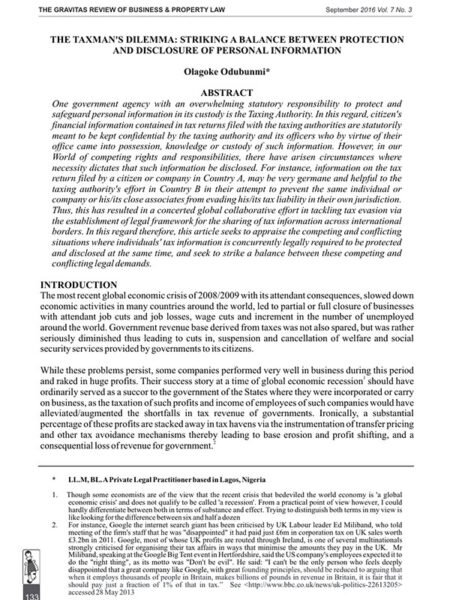
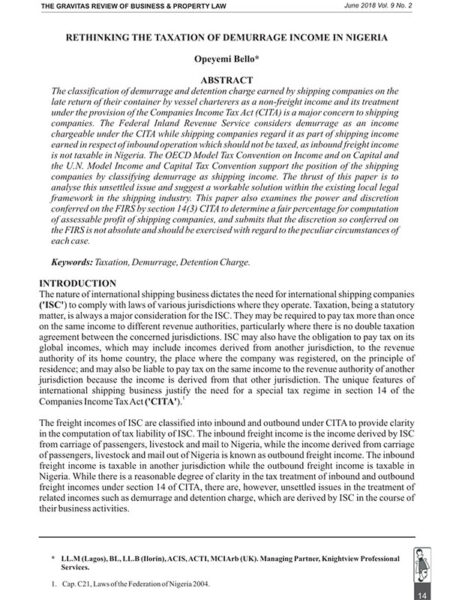
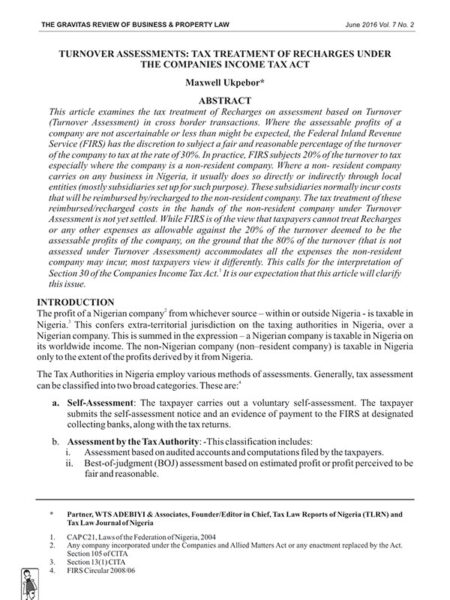
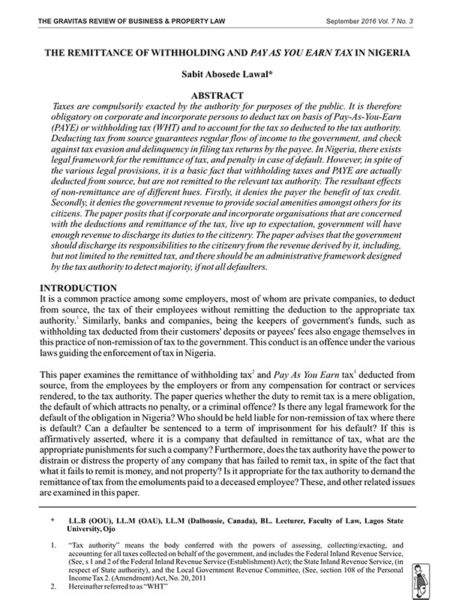


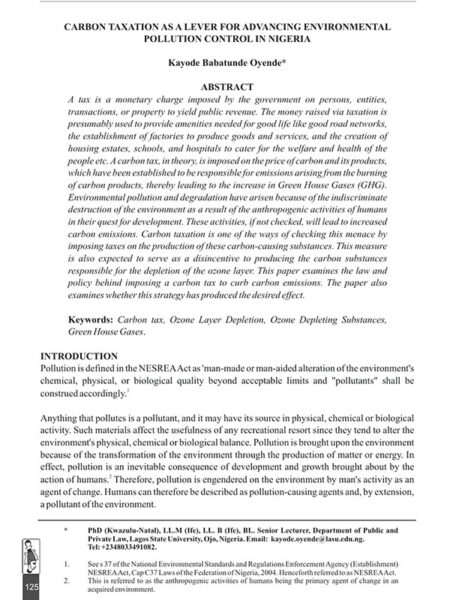
Reviews
There are no reviews yet.